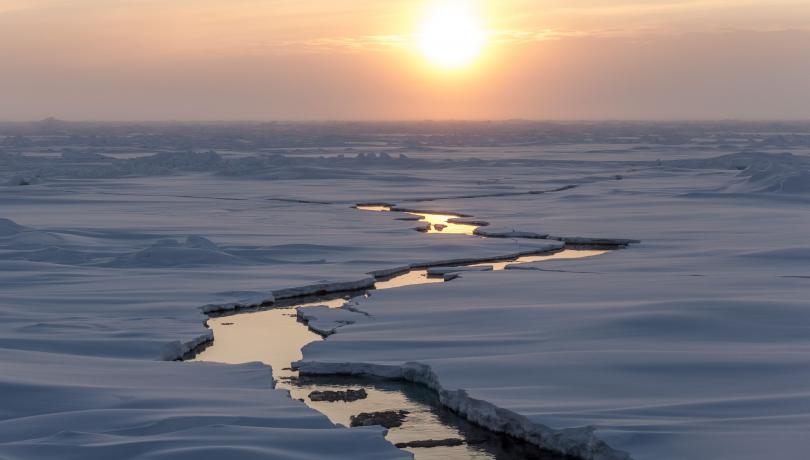The ICM participates in this project that will contribute to a more precise understanding of the ocean-ice-snow-atmosphere system to deliver improved models that describe polar and global climate.

The Arctic and Antarctic regions are experiencing rapid and unprecedented changes due to polar and global climate change, clearly caused by anthropogenic activities. 21st century projections show substantial decrease of sea ice in both Arctic and Antarctic, which are expected to impact people in the Arctic and also society beyond polar regions.
The CRiceS project brings together 21 international research teams, from Europe, Canada, South Africa, India and Russia, including one from the Institut de Ciències del Mar (ICM) of Barcelona. Through this initiative, the specialists seek to enhance the modelling of the impacts that these regions have for the global climate.
The new project involves a broad team of researchers to tackle the role of polar processes within the climate system, including processes related to the physics, chemistry and biology of climate, as well as the feedback loops in polar and global climate.
An integrated approach
“We believe that our integrated approach, including experts on both modeling and observations helps us to understand, not only the polar processes, but also how the polar systems are linked to global climate and society”, states Risto Makkonen, coordinator of the project and research professor at the Finnish Meteorological Institute (FMI).
From her part, Jennie Thomas, scientific coordinator of the project and senior research scientist at CNRS, states that “within CRiceS we bring together world leading expertise from the fields of sea ice physics, atmospheric aerosols and clouds, and sea ice biogeochemistry in order to better understand how these systems operate together and what to expect in a future with reduced sea ice”.
Finally, Carolina Gabarró, one of the ICM researchers involved in the project, states that "in order to have reliable climate predictions, it is essential to have repetitive and accurate observations of the poles that can be assimilated by the models. Satellite data is a fundamental tool to monitor the drastic transformations that the poles are undergoing and to improve prediction models”.
Better predictions about climate change
CRiceS will enhance climate models and improve how they represent polar ocean-atmosphere interactions with the goal of delivering improved predictions of polar and global climate change. “After all, global climate models are the key tool for predicting future changes in polar and global climate systems. Improved models would be capable of simulating detailed processes and especially interactions and coupling of polar systems, such as ocean, sea ice and atmosphere”, emphasizes in this sense Risto Makkonen.
The project will receive 8 M€ funding from the EU and will run until 2025. Under the H2020 research programme, the EU has funded joint Arctic and Antarctic collaboration initiatives with a contribution of about 200 M€ on polar research projects.